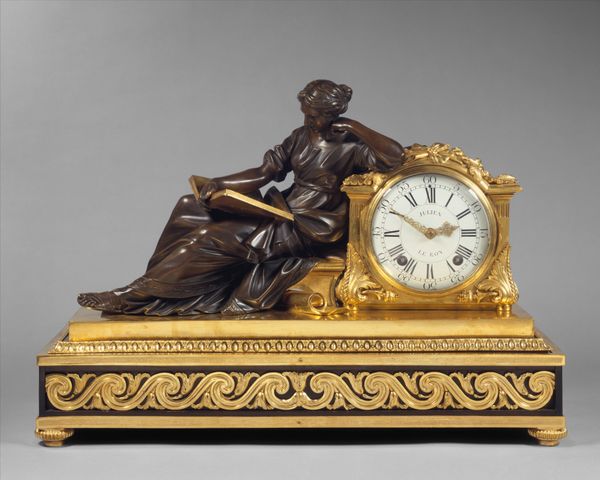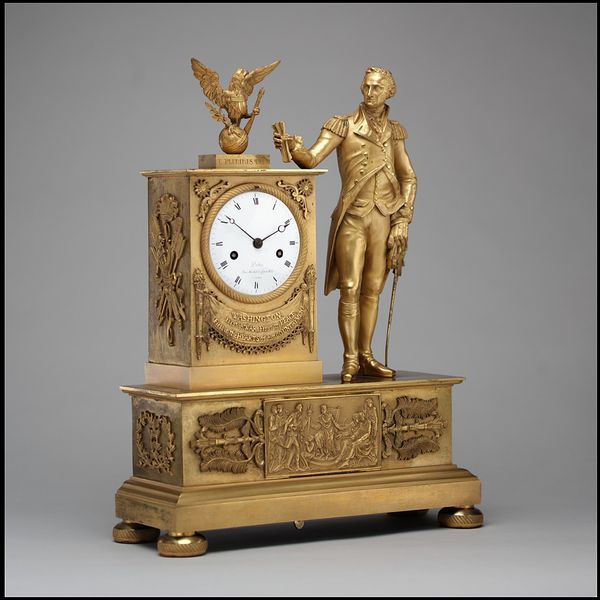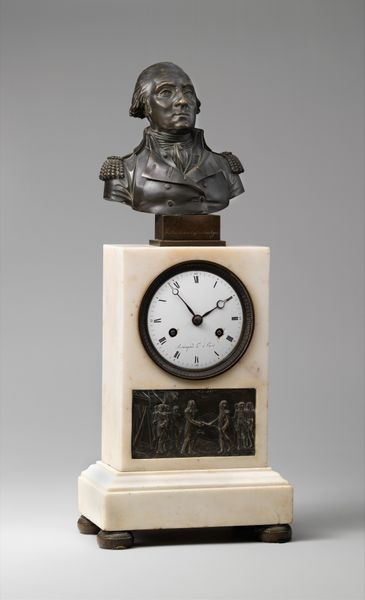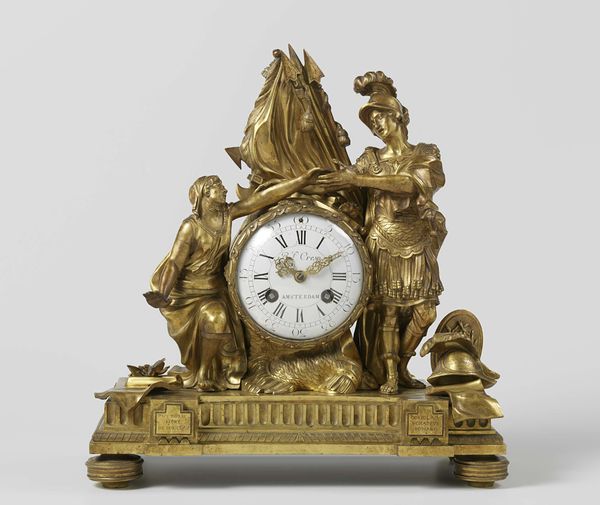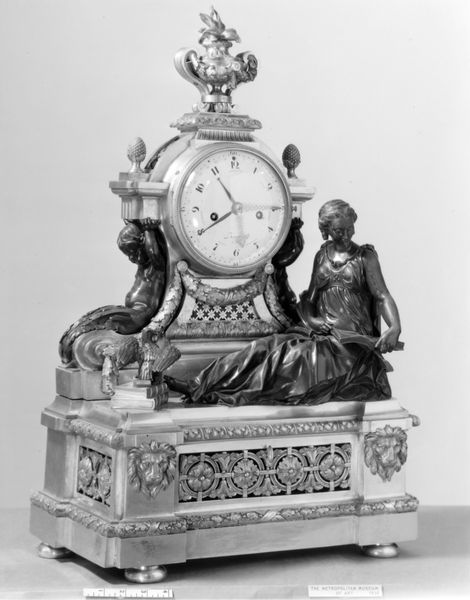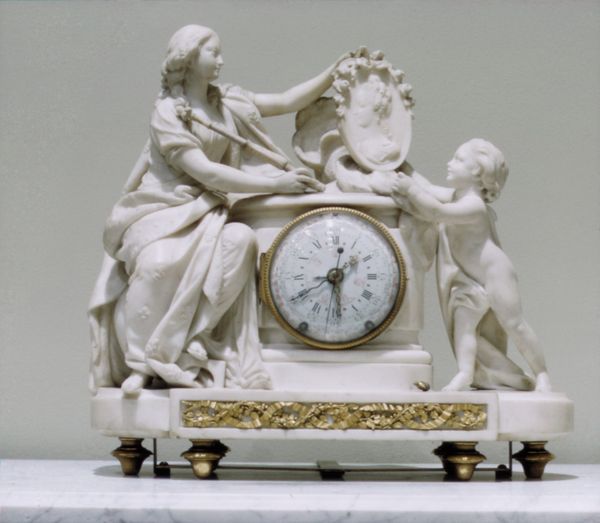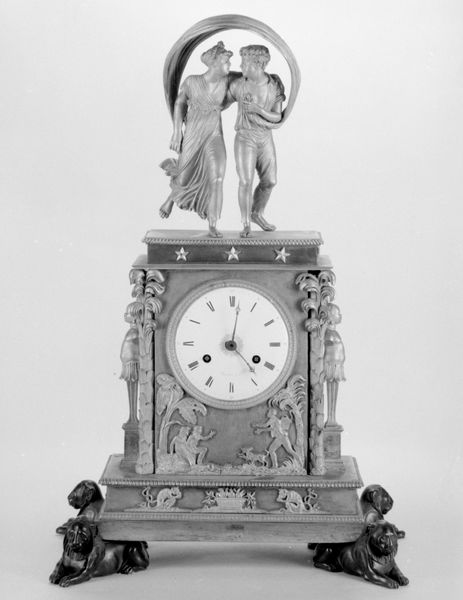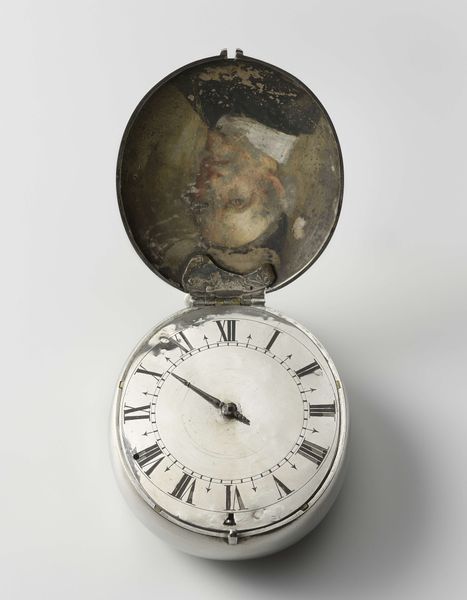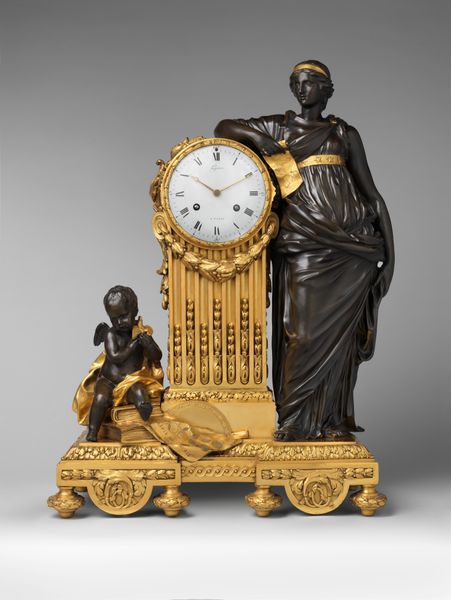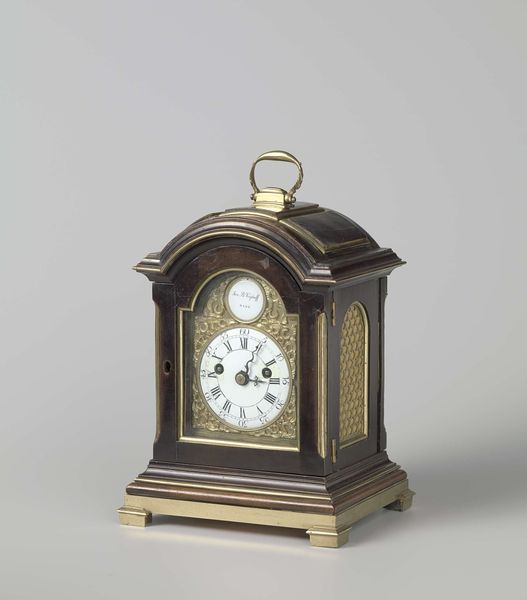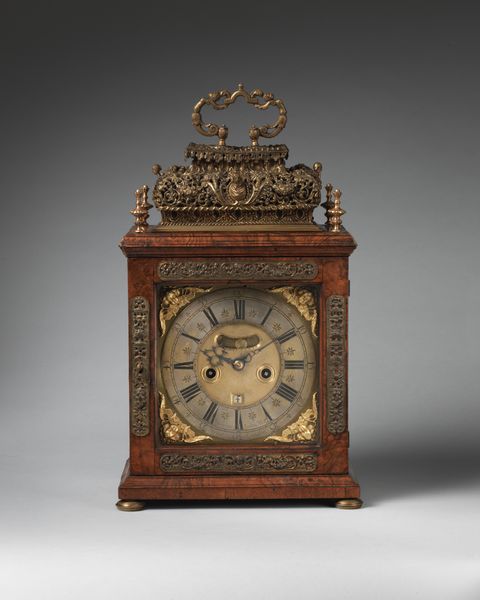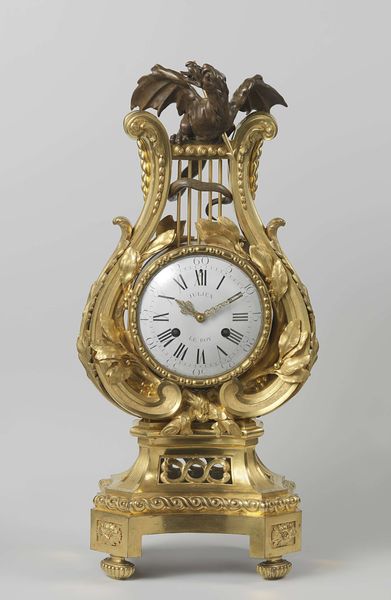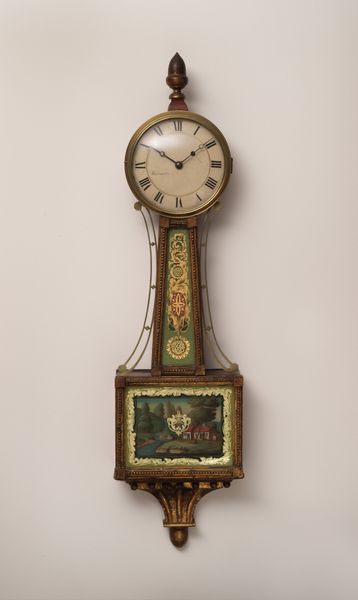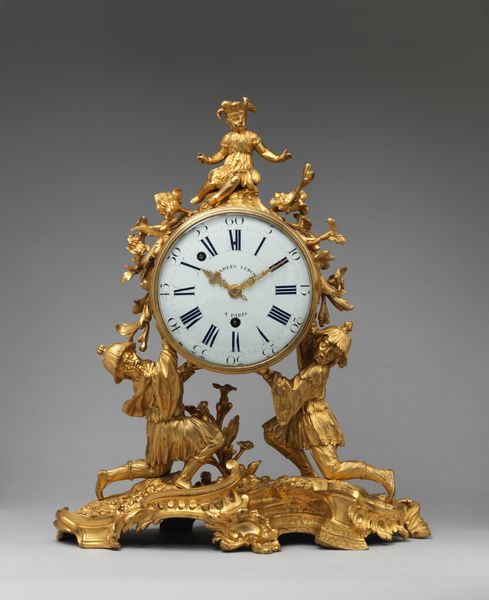
bronze, sculpture
#
portrait
#
neoclacissism
#
allegory
#
sculpture
#
bronze
#
sculpture
#
history-painting
#
decorative-art
Dimensions: height 68 cm, width 43.4 cm, depth 21 cm
Copyright: Rijks Museum: Open Domain
This bronze and gilt mantle clock is a striking testament to the Neoclassical period. The contrast between the dark patinated bronze of the draped female figure and the bright, reflective gilt surfaces creates a dynamic play of light. Notice how the figure’s posture – leaning thoughtfully on a stack of books atop the clock case – introduces a humanistic element. The clock face itself, a simple white disc with Roman numerals, is framed by elaborate gilded ornamentation. Below, a frieze of playful putti adds a sense of movement and levity, balancing the statue's solemnity. The clock's structure speaks to a semiotic interplay between time and knowledge. Timekeeping, with its emphasis on precision and order, meets the classical association of wisdom and learning, suggesting that time is best spent in thoughtful contemplation. This ornate clock destabilizes the very concept of time from a mundane reality to a philosophical pursuit.
Comments
rijksmuseum over 2 years ago
⋮
French decorative art was internationally acclaimed at the start of the 19th century. The most important Paris dealer at that time was Lignereux, from whom the English ambassador to France bought this clock. The secretary on which the pendule stands also came from this dealer. The woman leaning with her elbow on a stack of books represents Learning or Science.
Join the conversation
Join millions of artists and users on Artera today and experience the ultimate creative platform.
